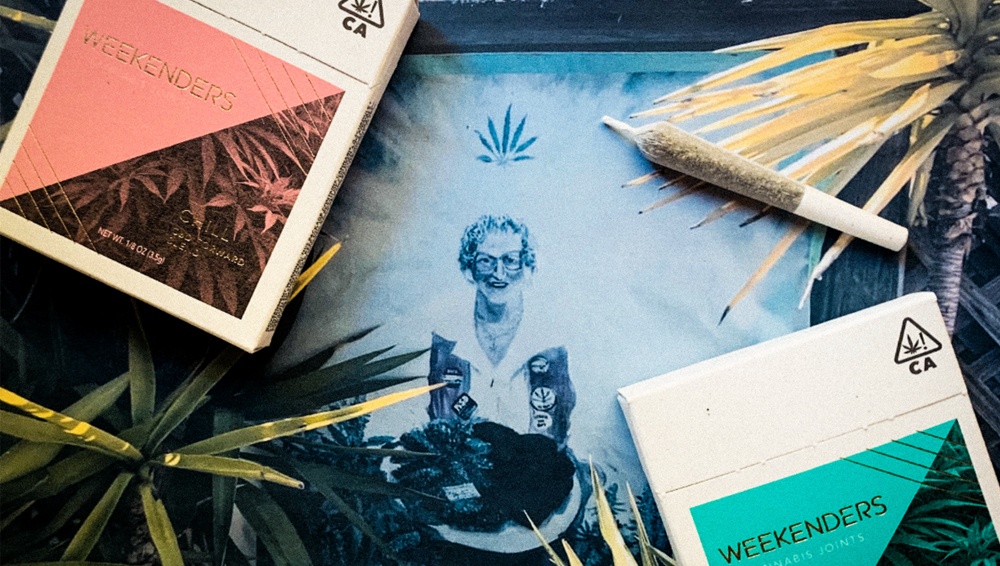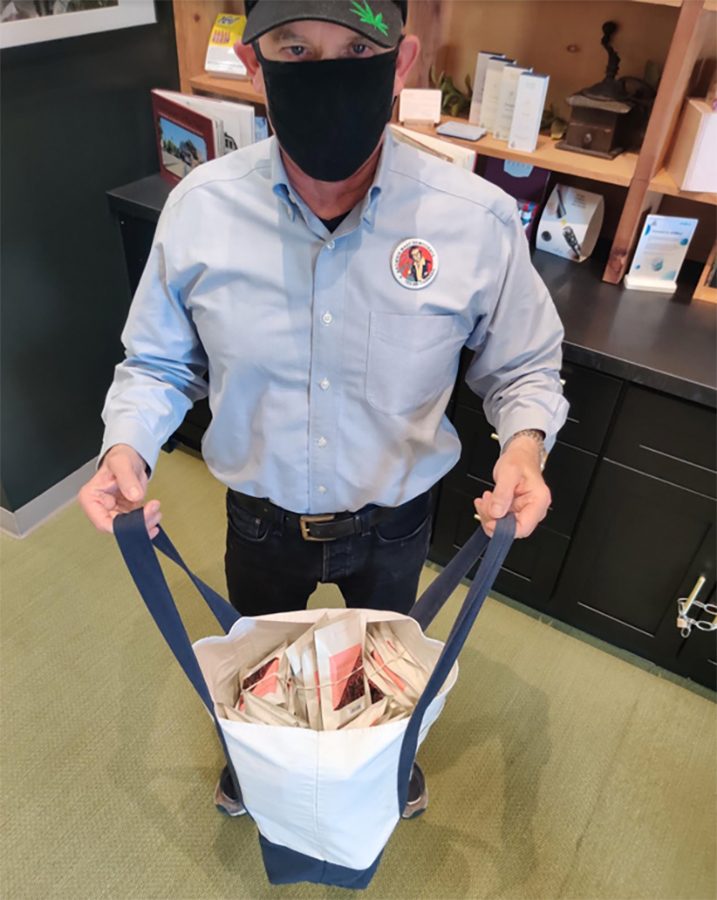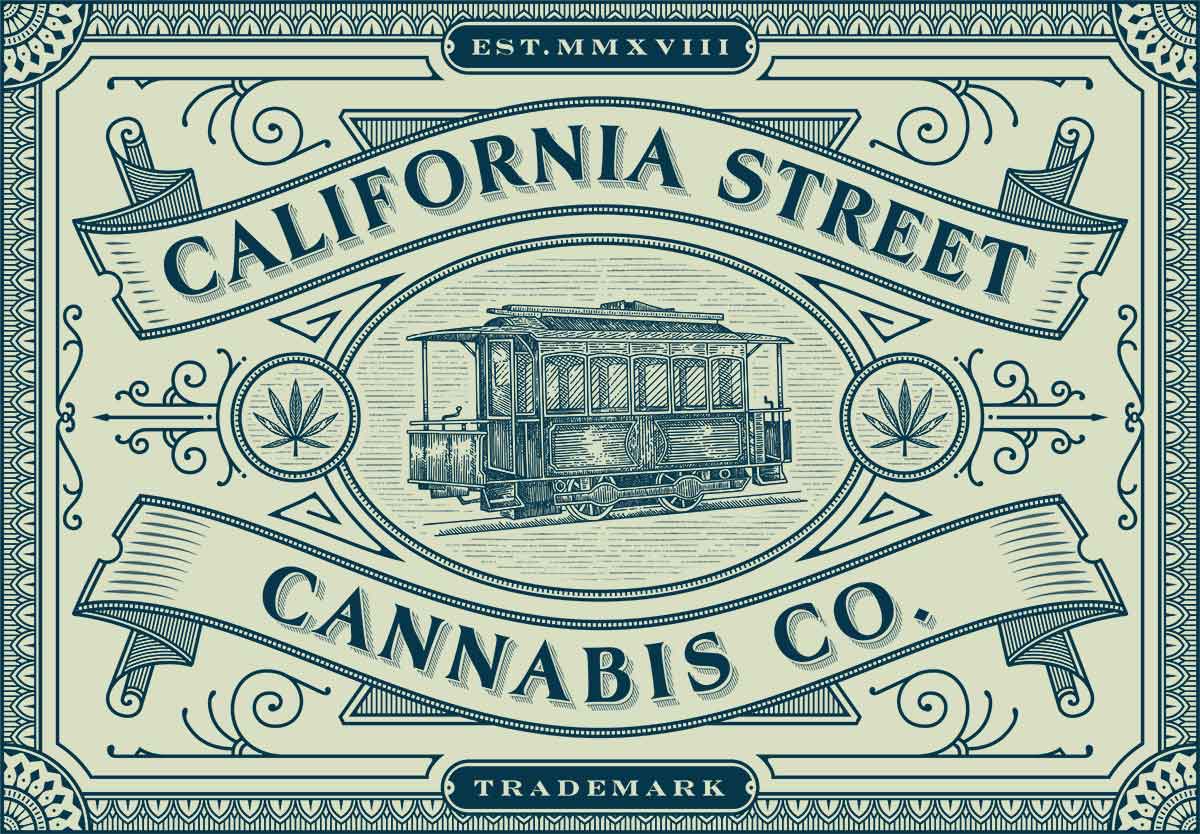Gifting Cannabis to HIV+ Low-Income SF Residents
This year’s Pride celebration marks the anniversary of the Stonewall Riots, a moment that sparked the LGBTQ rights movement in the US. Fifty one years later, the Supreme Court ruled earlier this week to prohibit employer discrimination based on sexual orientation and gender identity. We at CSCC are proud to honor our gay communities who have been integral in the foundation of the San Francisco we know and love, as well as in the cannabis legalization movement sweeping the nation. In honor of Pride month and the current political climate, California Street Cannabis Club has teamed up with some incredibly generous brands and activists, and together we are proud to announce the Brownie Mary Compassion Program for HIV+, low-income patients. This program was created as a means to give this medicine back to those first pioneers who paved the way for the cannabis industry it is today.
Cannabis + Civil Rights
Although we have made strides with legalization, there are deep rooted prejudices embedded in the War on Drugs and cannabis criminalization. During the late 60s and the Summer of Love, thousands of young men and women migrated to San Francisco seeking asylum from oppression, and yearning for community and acceptance. This fringe crowd consisted of artists, anti-war activists, homosexuals, and anyone who strayed from the status quo. Cannabis played a large part in the hippie counterculture movement, opening minds and spurring creativity in the individuals who consumed. Throughout the 70s it was used as a form of peaceful rebellion by those with desires to build a more inclusive society while rejecting social norms, consumerism, and war.
The hippies continued consuming cannabis, even after Nixon declared the War on Drugs as a means to strengthen his political power by criminalizing those opposed to his agenda. The War on Drugs gave police legal permission to arrest the anti-war left as well as citizens of color, homosexuals, and cannabis users in general, but the people never gave up their medicine. Reagan furthered the conservative cause by launching the “Just Say No” campaign and passing the Comprehensive Crime Control Act of 1984 which created more severe penalties for cultivation and possession of cannabis. Simultaneously, San Francisco was battling an unprecedented pandemic; the AIDS crisis swept through the city and a new wave of cannabis patients was born.
Brownie Mary’s Magic Brownies
Despite the War on Drugs, activists continued to fight for cannabis access. One incredible trailblazer was Mary Jane Rathbun, better known as Brownie Mary. She felt called to social justice from a young age on, first campaigning for rights of Miners in the Midwest and later fighting for women’s abortion rights in Minneapolis. It wasn’t until the 70s that Mary arrived in San Francisco and pioneered cannabis reform and legalization. Brownie Mary had used cannabis to heal her own personal ailments and wanted to help others do the same. She began baking her famous medicated brownies and sold them out of a basket on the streets of the Castro.

Activist David Goldman, President of Brownie Mary Democratic Club (BMDC), a lobbyist organization honoring her namesake, remembers her standing on the corner of 18th and Castro saying,
“Magic brownies for sale, magically delicious!”
She was 57 years old when she got arrested (the first time) and was sentenced to 500 hours of community service. Her grandmotherly figure appealed to the media which boosted her popularity and coined her, Brownie Mary.
Ward 86
As AIDS emerged in the 80s and began to devour a large percentage of San Francisco’s boys and men, Mary realized that her gay customers were buying brownies to ease their terrible symptoms. Through her community service she was connected to the Shanti Project who provided resources and supplies to AIDS patients living in Ward 86 at San Francisco General Hospital, the first ever AIDS medical treatment center. Mary received free cannabis from the community and she distributed hundreds of magic brownies free of charge to sick people in need.
HIV+ Brownie Mary Democratic Club Secretary, Michael Koehn, recalls,
“Brownie Mary was a very compassionate woman, she called the HIV patients her kids. She made brownies for Ward 86. She got arrested, and was sentenced to making non-medicated food for those same patients, and she went back to making brownies right away.”
In the critically acclaimed book, Season of the Witch, a timeline of the history of San Francisco, Author David Talbot writes,
“The AIDS ward began to take on the flavor of the predominantly gay patient base that it was serving. Volunteers began flocking to the clinic, bringing bouquets and toiletries and fashionable looking bathrooms, because no patient still in his right mind wanted to be caught dead in a hospital gown. Gay nightclub diva Sharon McNight rolled her piano into the ward and belted out songs like ‘Stand By Your Man’ as the patients sipped champagne and screamed encouragement. For many in the audience, it would be the last show they ever saw. Rita Rockett brought her top dancing act, along with baskets of food, to the hospital so often that a lounge in Ward 5B(86) was named after her.
Meanwhile, another beloved San Francisco institution, Mary Jane Rathbun – aka Brownie Mary – dispensed her magical cannabis-laced cookies and brownies to Ward 5B(86) patients. The elderly Brownie Mary, a former Pancake House waitress forced into retirement by a back injury, had turned to the marijuana bakery business after finding that smoking weed helped alleviate her pain. Brownie Mary was convinced it could do the same for AIDS patients, and she inspired one clinic researcher to undertake his own scientific studies of medical marijuana.”
Brownie Mary laid the groundwork for medical cannabis legalization and we owe much of our progress to her work in the 70s, 80s, and 90s. Although arrested three times, she continued to spearhead multiple propositions which legalized cannabis and protected its patients.
Bringing Back Compassion

Brownie Mary helped create the California Compassionate Use Act (Proposition 215), a grassroots initiative passed in 1996, which demanded secure cannabis access for those suffering from various diseases and ailments. Dennis Peron worked diligently alongside a group of activists to make sure the initiative was strong, which included giving patients the right to grow their own cannabis or consume it legally to treat common conditions such as chronic pain and anxiety. A successful lawsuit followed which added protections for doctors to recommend cannabis without fear of the Federal government revoking their licenses. Overall it was a huge win for the cannabis movement.
Despite being legal it still took time for cities and councils to feel comfortable permitting dispensaries and creating parameters to do so, and Prop 215 was followed up by Senate Bill 420 years later in 2003.
Activists and BMDC members David Goldman and Michael Koehn shared,
“Senate Bill 420 established the collective model and the California Medical Cannabis ID card model. Medical cannabis patients who obtained the Medical Cannabis State ID card in addition to their doctors recommendation were afforded additional protections, such as exemption from sales tax and presumption against arrest. The police had to honor the State card, but not a card from a physician’s office.”
It was this bill that created the industry model that most were familiar with prior to recreational legalization a few years ago.
Prop 64
Although the legalization of recreational cannabis in 2016 (Proposition 64) was a historic moment for California, many cannabis patients were negatively affected by the political move. Unfortunately Prop 64, which went live in dispensaries in January 2018, repealed some of these liberal initiatives and has failed to address some important shortcomings.
Those who need cannabis the most have the hardest time getting it. On par with cigarettes, San Francisco patients are currently paying 59% tax and San Jose is close to 70%, yet the industry still doesn’t have banking or federal protection, and there are plans to increase taxes again next January. In San Francisco there is a 9% sales tax, 15% retail statewide excise tax, 10% cultivation tax, and 25% testing fee to test cannabis, all of which are passed down to the consumer. And while legal, there is still no employment protection for adult consumers of cannabis or medical cannabis patients, and it is still illegal to consume cannabis in public or nearly anywhere for that matter, considering most rental properties ban smoking on the premises.
BMDC President David Goldman explains, “Over 80% of california cities have no retail access, they can only get cannabis by delivery. We fought tooth and nail to allow delivery companies to deliver to counties that don’t allow retail access, but it had to be very discrete at first. Low income patients need relief. You don’t deny poor people penicillin because they are poor. They desperately need it. They are often priced out of the regulated market because taxes are so high. Next year, San Francisco is facing another 7-11% tax increase through the supply chain due to Prop D, which raises gross receipt tax rates for cannabis businesses to the highest level of any other type of business in the city.”
His partner Michael Koehn adds, “For people that cannot work and are on disability with no pension, the effect is that they have relatively little money to spend on things like cannabis, their medicine. They spend money on food, shelter, clothing, the necessities. Low income cannabis patients should never have to choose between paying their rent and getting their cannabis medication.”
Compassion Programs
Collectives used to be able to give away cannabis without having to pay taxes, but Prop 64 made that impossible. Collectives could no longer donate products without being taxed, meaning that businesses and individuals could not afford to give it away, leaving patients without medicine. This basically eliminated compassion programs by default.
Over taxation and regulation hurts marginalized communities who cannot afford to pay the exorbitant tax rates, which encourages a thriving unregulated market. The illicit products are priced much lower but are not tested, so they have been shown to contain hazardous materials, demonstrated in the Vitamin E acetate vape crisis. Deaths could have been avoided if safe medicine had been purchased through proper channels, which require thorough testing.
Due to the hard work of many activists, including David and Michael of BMDC, Governor Newsom signed Senate Bill 34, The Dennis Peron and Brownie Mary Act (Scott Wiener, State Senator D-SF) in Fall of 2019 which essentially re-introduced compassion programs which finally allow brands to donate cannabis without having to pay the sales tax, excise tax, and cultivation tax. CSCC is proud to participate in one of the first compassion programs to re-launch in the Bay Area.
California Street Cannabis Company, Weekenders, and the Brownie Mary Compassion Program
It is now 2020 and there is a perfect storm brewing; civil unrest, a global pandemic, and national leadership are all fanning the flames of oppression. Social programming, legislation to protect LGBTQ and BIPOC communities, and support for the most vulnerable are essential actions necessary for our extended community to make it through this together.
We’re celebrating Pride month with the creation of a positive and collaborative social program encouraging equal rights and inclusion. California Street Cannabis Company has partnered with Weekenders Cannabis, who is generously absorbing cultivation tax, packaging, and manufacturing costs to donate high quality cannabis pre-rolls to low income, HIV+ San Francisco residents. Filigreen Distribution oversees the testing and delivery of Weekenders products, and they are equally as excited to be a part of the project. The Brownie Mary Democratic Club will be sharing the gifted product with their low-income HIV+ community members who are grateful to receive it.
All regulated cannabis must be tested for contaminants such as mold, fungus, bacteria, pesticides, heavy metals, and growth uptake inhibitors before they are sold to retailers, which is why access to legal cannabis is so vital, especially to those who are ill. On Monday, June 15th, we were honored to provide the first batch of Weekenders high-CBD pre-rolls to the Brownie Mary Democratic Club team who will redistribute to their community of HIV+ patients in need.

One of our founders, San Francisco native and POC Drakari Donaldson, shared why this new compassion program is so important to him and California Street Cannabis Company:
“Ultimately it’s only a matter of time before cannabis becomes federally legal, and compassion programs help control how cannabis is legalized. First and foremost, compassion programs allow people who are dealing with serious illness, physical disability, or chronic pain, those who may not be able to afford legal cannabis, it allows them access. These programs broaden the range of people who can use cannabis. We want to make sure it’s not just the big corporations that have control of this substance, this valuable medicine. If we don’t legalize it the correct way, cannabis is going to be accessible only to those who can afford it. Cannabis should be for everyone, everyone should have access to it as a medicine. As it becomes legal recreationally, the compassion, the medicinal parts of cannabis are being blurred out by recreational use. We’re forgetting what it can actually do and what it’s actually for.”
Weekenders
Weekenders Cannabis has been wanting to participate in a compassion program so it was a perfect fit when our Director of Marketing, Sebastian Kimmel, reached out to Weekenders Co-Founder Jesse Hicks with the idea. They looped in Filigreen and Brownie Mary Democratic Club to figure out how we could bring this to life.
Weekenders’ Co-Founder Kahlil Lozoraitis felt honored to be working on such an important project.
“Everyone was like-minded around it [the compassion program]. We’re making a commitment to the community and exploring different ways Weekenders can help out. We’re just a small company doing a little bit of what we can, so we’re starting small, and hope to be able to do more as we get bigger. And it’s pretty wild, in an overly white industry, for two African American CEOs to work together on this.”
Weekenders sources their high-CBD flower from Redwood Valley Farm, a small, sustainable sun-grown operation in Humboldt County. The brand acknowledges the race for high-THC potent products but chooses to instead cultivate flower that still gets you high, but is designed for being functional and having more fun doing what you’re already doing. Weekenders pre-rolls complement everyday activities such as hiking or cooking dinner with friends, without the anxiety that can accompany high-THC products. They grow high CBD strains that also contain THC and various other beneficial cannabinoids and compounds so the user can experience the medicinal effects of the whole plant.
Filigreen Distribution
Filigreen is a fully-licensed distributor with a B2B e-commerce marketplace. To help close the supply chain loop, they optimize their proprietary software, marketplace, and multiple warehouse locations to scale brands efficiently across the state.
One of the hurdles companies interested in donations are facing is taxes. Although the brand is donating this product free of charge, they may still be responsible for paying the Cultivation Tax on the product if it was not marked as a donation in METRC prior to moving to a distribution center. And if a COA (Certificate of Analysis) expires before a donation occurs, the brand may be additionally responsible for the cost of retesting.
Filigreen Director of Marketing Jess Cosca commented about the Brownie Mary program and why it is so important.
“The system right now creates financial barriers between people who want to do good and people who need the gift of medical cannabis. When 64 passed, the focus shifted to the recreational consumers and it’s been a struggle to get Compassion programs anywhere near where they once were.”
Through partnerships with programs like Brownie Mary, Filigreen is helping their partners create and manage donation programs within their own organizations.
Brownie Mary Democratic Club
David and Michael are life partners who have lived in San Francisco for nearly 50 years. Through politics, networking, social outings, and activism they have met like-minded people and fostered a close-knit community. While leading the Brownie Mary Democratic Club they have created a loyal following of about 25 HIV+ low income residents living on disability. The goal of this program is to provide as much cannabis as these patients need so they can focus their resources on essentials.
Summary
This is a powerful legacy to be a part of. The history of cannabis in San Francisco is rich with knowledge but also blood, sweat and tears, and Brownie Mary’s work is not yet complete. We must come together to create programs and new legislation, to demand equality and pay tribute to this ongoing movement. This project has taken teamwork, energy, and collaboration, from conception through delivery, and it is only the beginning. The program began this Monday, June 15th, and Weekenders will continue to donate 50 packs of their Chill CBD balanced pre-roll packs per quarter to Brownie Mary Democratic Club for the foreseeable future. If you know anyone who is financially struggling and in need of medical cannabis, please contact our club and we will do our best to support them. Feel free to contact our team if you have any questions about the program or cannabis in general. Stay safe!





